Fanboy Flick Pick: Saving Mr. Banks‘ Disneyfied History Is Astute Culture Clash
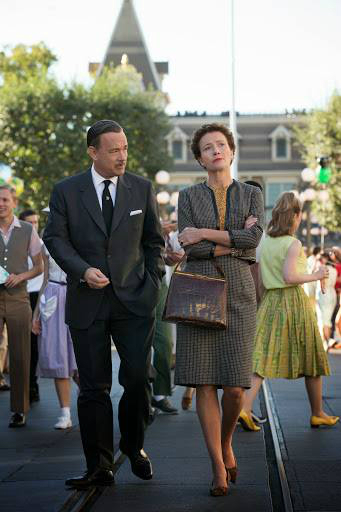 |
If you were expecting a Disney film to paint a dark picture of the company’s familiar founder in his making of Mary Poppins, you’re probably the sort who goes to the latest Tyler Perry’s Why Did I Get Married sequel expecting a ringing endorsement of divorce and Satanism. They’re simply not going to show Walt saying, “Hey, kikey Jew boy, you’re a Commie rat and I’m gonna nail ya, see?” And for some, anything less than that will come as a disappointment, but this is a film in which Disney’s corporate policy against the depiction of smoking means that Walt’s habit can only be hinted at through wheezing and one conspicuous bit of butt-stubbing. We can argue whether he was in the right in his arguments with Mary Poppins author P.L. Travers or not, though if you’re going to try to argue that the final product Disney made is a bad film, I shall politely laugh and walk away.
Sure, the specifics are fudged, noticeably and otherwise – the Winnie-the-Pooh merchandise we see wouldn’t have existed yet, the implication that Travers had some kind of emotional breakthrough and was never persnickety again is nonsense, and the idea that she wouldn’t write Mary Poppins sequels when money got short is simply, provably false. One can certainly object to the neat, three-act structure that this screen story shoehorns reality into, while pointing out that if the thing hooks you emotionally, it simply doesn’t matter.
And to me, it doesn’t. Because when I look at the onscreen Disney and Travers, I see my parents. Sometimes hilariously so.
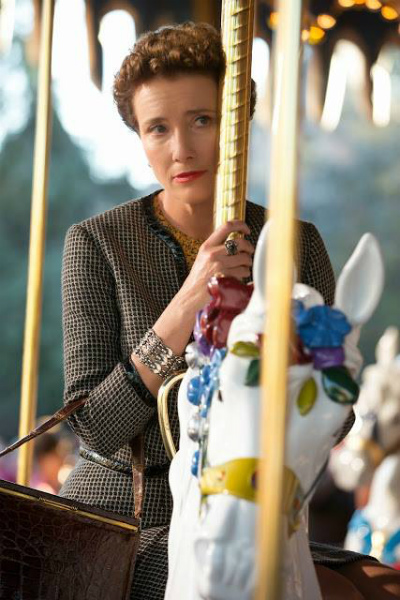 |
“Oh no!” I can just hear the critic-critiquers at sites like Existimatum already saying. “This review is inappropriately personal!” Well, yeah – every review is personal. Movies evoke emotional responses, and to deny mine is to be even more revisionist than some would say Disney is being here. I think, however, that it is due to universal truths that go deeper than one blogger’s life.
My father is from Virginia. My mother is from England. In the former, I see a man who has told me he feels like he never really grew up, and relates to children sometimes better than other adults – not unlike Walt Disney. In the latter, a fussy, tidy woman with a sense of the way things ought to be ordered, capable of filtering out pop culture completely in favor of classical music and literature, not unlike Travers. It speaks to national differences – I’m not sure you can live in the U.S. without at least a passing knowledge of, let’s say, the existence of the Kardashians, while in small English towns, you can putter around in the garden, catch up on politics in the paper, and keep your TV viewing to the five or so networks (might be more now; I don’t know) everyone can receive.
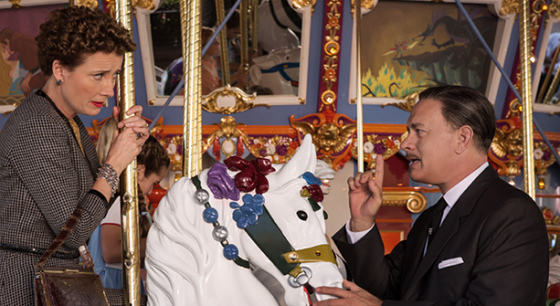 |
Additionally, the U.S. has a culture geared more to children, and adults who wish to maintain their childhood obsessions – sites like the one you’re reading now would never have originally formed out of whole cloth in the UK, though I’m sure there are plenty now. We can’t even get NC-17 films widely released here, and when violent video games come out, we instantly think of the children. While western Europe is becoming more Americanized, my experience there has been of a “seen and not heard” approach to childhood – the goal with kids is to turn them into adults as quickly as can be achieved, while here we think it’s sacred to “prolong their innocence” as much as possible. Both approaches have their pros and cons, and both are embodied in the struggle between Walt Disney and P.L. Travers. He wants a movie his daughters will love; she wants to protect a character designed to prepare children for disappointment.
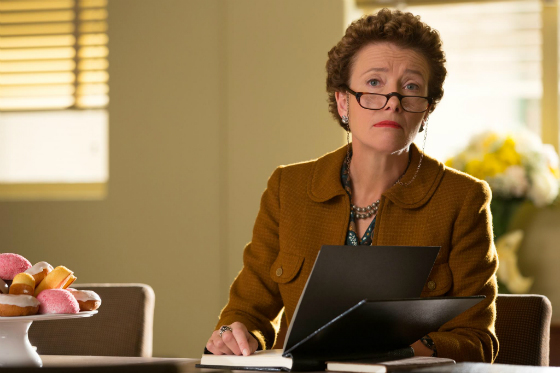 |
Not to play compare/contrast forever, but in real life, Travers resembled the late Washington journalist Helen Thomas more than Emma Thompson (who looks a lot like my mother in this particular get-up, as it happens), and Disney didn’t exactly talk with the “Tom Hanks Generic Southern Accent.” Still, Hanks’ unofficial role as America’s most beloved non-threatening celebrity makes him a perfect fit spiritually; in that capacity, he’s a far better choice than fan-pick Ryan Gosling, subject of popular photoshopping into fake Disney biopic posters. Travers isn’t as well-known to us as the ubiquitous Walter Elias, but Thompson certainly conjures up all the OCD Englishness we’d imagine she must have had, complete with meds for it (the end credits, featuring actual Travers audio, seem to bear this out).
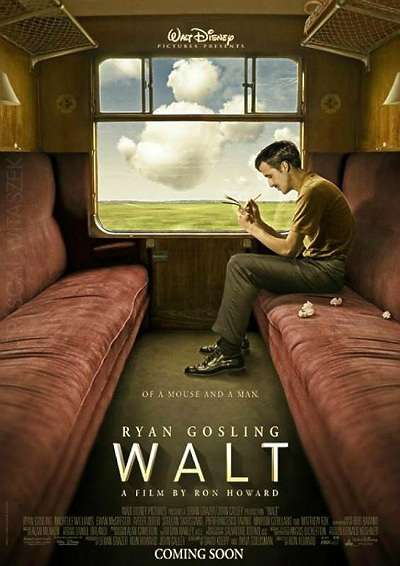 |
| Howard, yes. Gosling, not so much |
More controversial in the casting department is Colin Farrell, who plays Travers’ father in flashbacks to her childhood in Australia. Those who’ve come to see a comedy about the Hollywood development process are more likely to resent the constant switches in time, but Farrell, who presumably knows a thing or two about being a lovable boozer from experience, does decently with a challenging part – he’s an irresponsible drunk who fails his family on a professional/breadwinner level, yet his alcohol-fueled fantasies inspire him to create magical playtimes for his children. While director John Lee Hancock (The Blind Side) arguably lingers too long on Papa’s story – the best bit is when he cuts back and forth in time to have Farrell suddenly sing a Sherman brothers song from the ’60s present that fits the character in his moment – he is to be credited for giving us a more dimensional drunkard than other movies might have.
If you cannot relate to any of this, the film will not work – as history it’s dubious, and as drama, it’s predictable; hell, we all know how it has to end, because it’s not like Mary Poppins didn’t get made. It’s in the character and performance details that it all comes to life – ironically, the dramatic medicine that helps the copious spoons full of sugar to go down.
—
Saving Mr. Banks is currently in limited release, and opens wide Friday.

